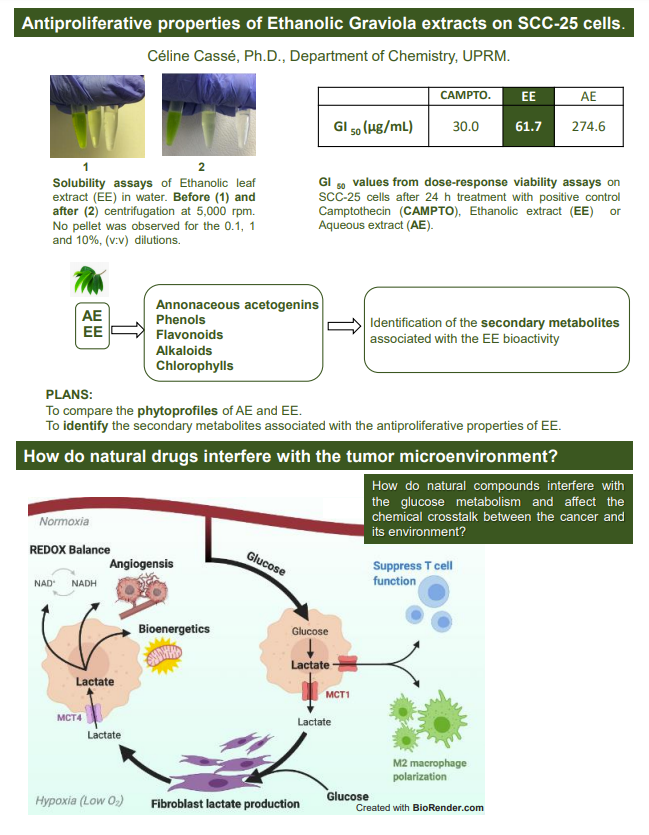Our research focuses on the discovery of new natural drugs with ant cancer properties. One of the characteristics of cancer cells is their high proliferation rate and as such drugs that inhibit the growth of cells are considered as good anticancer agents. Annona muricata, graviola or guanábana is a tropical evergreen tree commonly cultivated in Puerto Rico. Extracts from graviola have been reported to have antiproliferative activities in a large variety of cancer cells. We have investigated the in vitro toxicity of graviola leaf extracts on tongue Squamous Cell carcinoma cell line 25 (SCC-25), an in vitro model for Head and Neck Cancers. Our results show that in contrast to an aqueous extract (AE), an ethanolic extract (EE) substantially inhibits the growth of SCC -25 in vitro. We plan to run a qualitative analysis of the extracts chemical phytoprofiles to investigate which family of compounds is overrepresented in EE and could thus account for the EE bioactivity. Cancer progression is associated with a reprogramming of the metabolism of the cells geared toward an accelerated glycolytic activity (Warburg effect). We are currently working on a review article on the molecular mechanisms by which natural drugs do interfere with the glucose metabolism and inhibit the chemical crosstalk between cancer cells and their environment.

